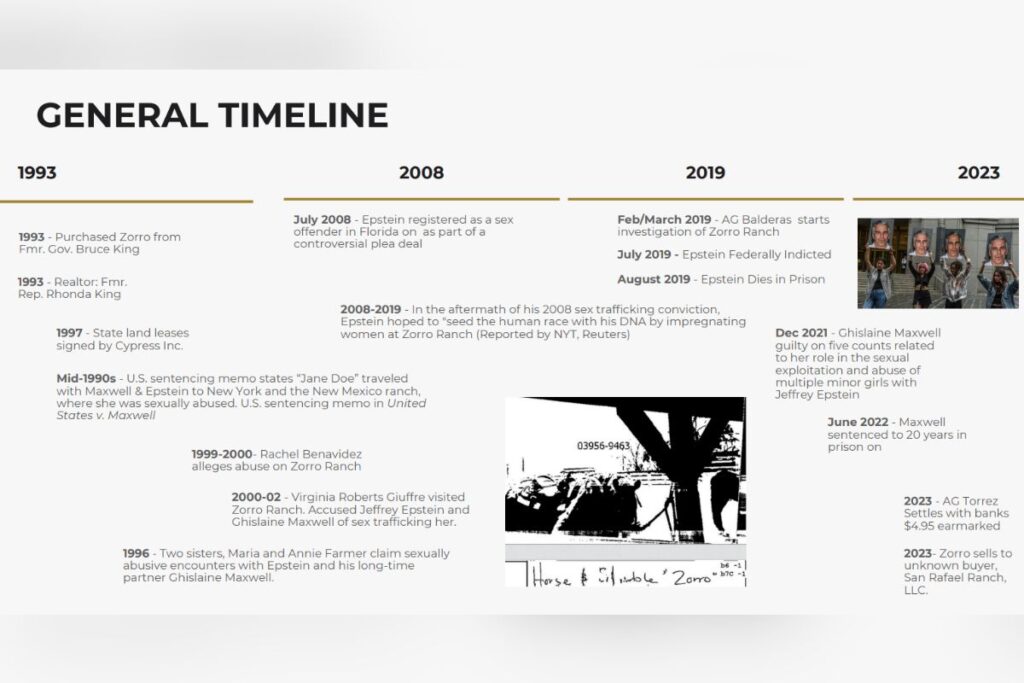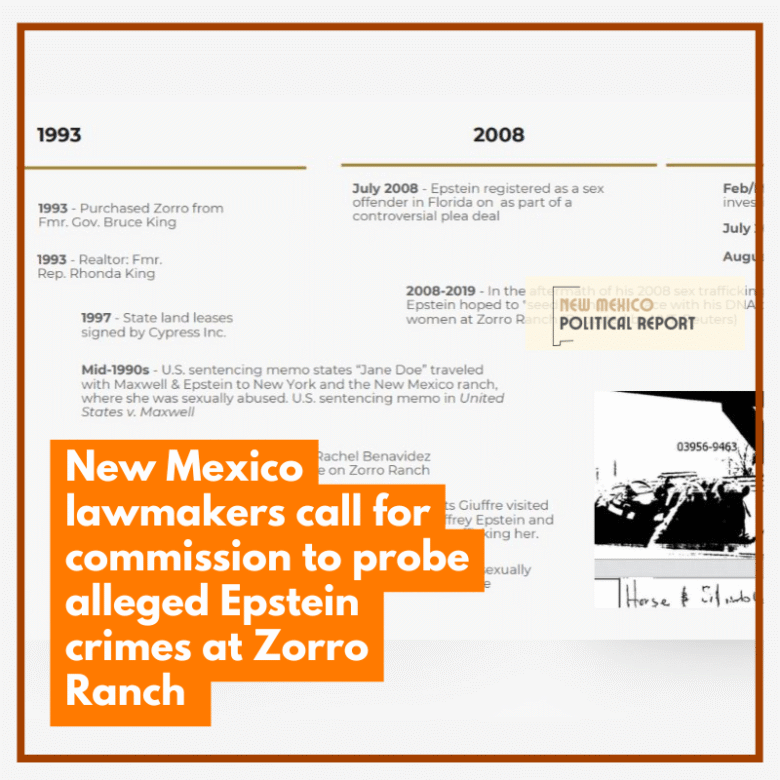New Mexicans may soon learn more about the alleged crimes of Jeffrey Epstein, even as efforts to get additional information about the disgraced financier and convicted sex abuser have stalled at the federal level.
On Thursday, state lawmakers presented a proposal to the Courts, Corrections and Justice Interim Committee to create a commission to probe the alleged sexual abuse and human trafficking of young girls at the Zorro Ranch, a property in Stanley, New Mexico, that Epstein had owned since 1993.
State Rep. Andrea Romero (D-Santa Fe) added that the panel would function much like the 9/11 commission that looked into the September 11, 2001, attacks, and would look into any possible criminal activity at the Zorro Ranch, uncover any public corruption associated with it, and identify potential gaps in state law that Epstein may have exploited to operate in New Mexico.
“This commission specifically will seek the truth about what officials knew, how crimes were unreported or reported, and how the state can ensure that this essentially never happens again,” Romero said, who gave the presentation along with state Rep. Marianna Anaya (D-Albuquerque).
Romero noted that Epstein was able to operate in New Mexico despite decades spent visiting the state, statements from alleged victims, and well-documented political and philanthropic connections within the state.
A timeline matching accusations from victims to activities at the ranch was shared with committee members. It noted that Maxwell’s plea agreement detailed allegations including that a “Jane Doe” alleged that she first traveled to New Mexico where she was abused in the mid-1990’s. Other victims have identified abuse at Zorro until at least 2000. The Times of London later reported that after his 2008 conviction for sex abuse, Epstein intended to “seed the human race with his DNA by impregnating women at Zorro Ranch.”

Anaya noted that there were decades of missed opportunities to have stopped Epstein, given his time spent in New Mexico and the chain of events between the time he bought the ranch up until the abuse was uncovered.
“Even after all these years, you know, there are still questions of New Mexico’s role as a state, our roles in terms of oversight and accountability for the survivors who are harmed,” she said,
Allegations against Epstein were not only in New Mexico but also in other states, related to human trafficking and sex crimes, and he was facing federal charges at the time of his death in 2019. Then-New Mexico Attorney General Hector Balderas launched an investigation into Epstein, but no charges were ever filed.
How will the commission work?
The five-member panel would be comprised of two Democrats, two Republicans, and a fifth non-partisan member. The committee would be created through a House resolution that would be introduced in the coming 30-day legislative session beginning in mid-January. Commission members, along with staff, would conduct their investigation over 18 months and then report their findings. The panel would have the power to subpoena witnesses to testify. The commission’s work would cost $2.5 million for expenses related to staff and the investigation.
Lawmakers at the hearing expressed support, though some Republicans, such as state Rep. Stefani Lord (R-Sandia Park), voiced worry that the commission could become political. She asked during the hearing if the commission would also be willing to go after Democrats who could be implicated. Anaya responded that she believes the final results will not be partisan.
“I believe that the folks who will be potentially implicated in all this are just as bipartisan as the commission will be,” she said.


Leave a comment